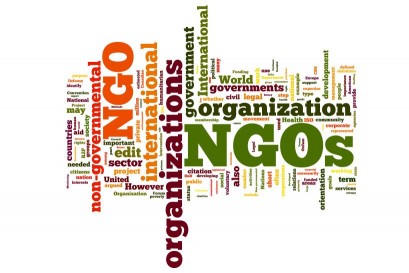This website uses cookies so that we can provide you with the best user experience possible. Cookie information is stored in your browser and performs functions such as recognising you when you return to our website and helping our team to understand which sections of the website you find most interesting and useful.
The funny list of Non-governmental organizations are a heterogeneous group. As a result, a long list of additional acronyms has developed,
- BINGO: ‘Business-friendly International NGO’ or ‘Big International NGO’
- TANGO: ‘Technical Assistance NGO’
- TSO: ‘Third Sector Organization’
- GONGO: ‘Government-Operated NGOs’ (set up by governments to look like NGOs in order to qualify for outside aid or promote the interests of government)
- DONGO: ‘Donor Oganized NGO’
- INGO: ‘International NGO’
- QUANGO: ‘Quasi-Autonomous NGO,’ such as the International Organization for Standardization (ISO). (The ISO is actually not purely an NGO, since its membership is by nation, and each nation is represented by what the ISO Council determines to be the ‘most broadly representative’ standardization body of a nation. That body might itself be a nongovernmental organization; for example, the United States is represented in ISO by the American National Standards Institute, which is independent of the federal government. However, other countries can be represented by national governmental agencies; this is the trend in Europe.)
- National NGO: A non-governmental organization that exists only in one country. This term is rare due to the globalization of non-governmental organizations, which causes an NGO to exist in more than one country.
- CSO: ‘Civil Society Organization’
- ENGO: ‘Environmental NGO,’ such as Greenpeace and WWF
- NNGO: ‘Northern NGO’
- PANGO: ‘Party NGO,’ set up by parties and disguised as NGOs to serve their political matters.
- SNGO: ‘Southern NGO’
- SCO: ‘Social Change Organization’
- TNGO: ‘Transnational NGO.’ The term emerged during the 1970s due to the increase of environmental and economic issues in the global community. TNGO includes non-governmental organizations that are not confined to only one country, but exist in two or more countries.
- GSO: Grassroots Support Organization
- MANGO: ‘Market Advocacy NGO’
- NGDO: ‘Non-governmental Development Organization’
USAID refers to NGOs as private voluntary organizations. However, many scholars have argued that this definition is highly problematic as many NGOs are in fact state and corporate funded and managed projects with professional staff.[citation needed]
NGOs exist for a variety of reasons, usually to further the political or social goals of their members or founders. Examples include improving the state of the natural environment, encouraging the observance of human rights, improving the welfare of the disadvantaged, or representing a corporate agenda. However, there are a huge number of such organizations and their goals cover a broad range of political and philosophical positions. This can also easily be applied to private schools and athletic organizations.

